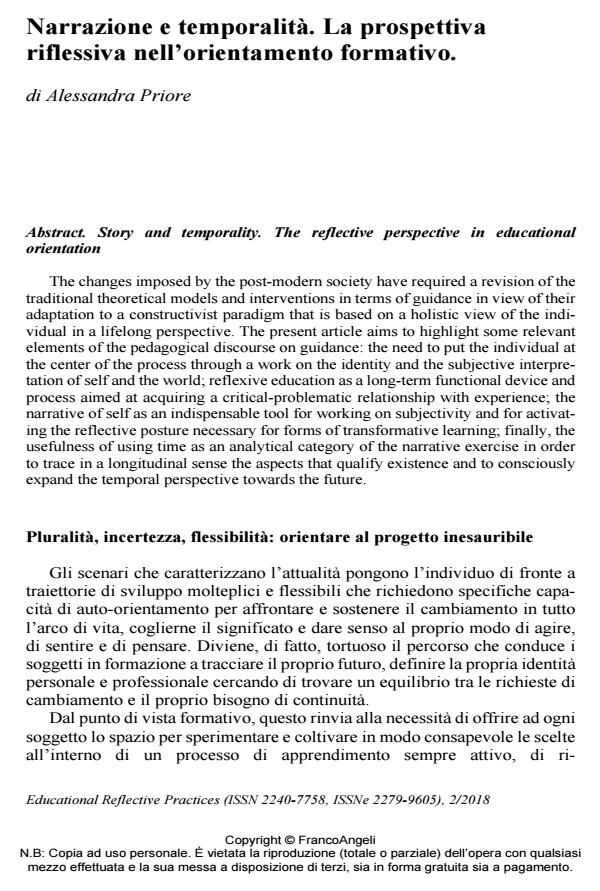Narrazione e temporalità. La prospettiva riflessiva nell’orientamento formativo.
Titolo Rivista EDUCATIONAL REFLECTIVE PRACTICES
Autori/Curatori Alessandra Priore
Anno di pubblicazione 2019 Fascicolo 2018/2
Lingua Italiano Numero pagine 10 P. 234-243 Dimensione file 154 KB
DOI 10.3280/ERP2018-002015
Il DOI è il codice a barre della proprietà intellettuale: per saperne di più
clicca qui
Qui sotto puoi vedere in anteprima la prima pagina di questo articolo.
Se questo articolo ti interessa, lo puoi acquistare (e scaricare in formato pdf) seguendo le facili indicazioni per acquistare il download credit. Acquista Download Credits per scaricare questo Articolo in formato PDF

FrancoAngeli è membro della Publishers International Linking Association, Inc (PILA), associazione indipendente e non profit per facilitare (attraverso i servizi tecnologici implementati da CrossRef.org) l’accesso degli studiosi ai contenuti digitali nelle pubblicazioni professionali e scientifiche.
The changes imposed by the post-modern society have required a revision of the traditional theoretical models and interventions in terms of guidance in view of their adaptation to a constructivist paradigm that is based on a holistic view of the individual in a lifelong perspective. The present article aims to highlight some rel-evant elements of the pedagogical discourse on guidance: the need to put the indi-vidual at the center of the process through a work on the identity and the subjective interpretation of self and the world; reflexive education as a long-term functional device and process aimed at acquiring a critical-problematic relationship with experience; the narrative of self as an indispensable tool for working on subjectivity and for activating the reflective posture necessary for forms of transformative learning; finally, the usefulness of using time as an analytical category of the narrative exercise in order to trace in a longitudinal sense the aspects that qualify existence and to consciously expand the temporal perspective towards the future.
Alessandra Priore, Narrazione e temporalità. La prospettiva riflessiva nell’orientamento formativo. in "EDUCATIONAL REFLECTIVE PRACTICES" 2/2018, pp 234-243, DOI: 10.3280/ERP2018-002015